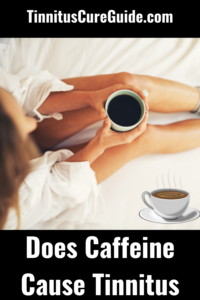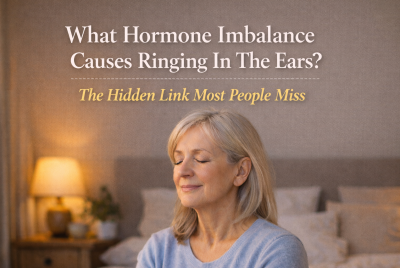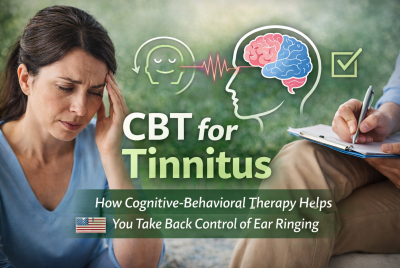Does Caffeine Cause Tinnitus
Explore the link between caffeine and ear health. Does caffeine cause tinnitus? Dive in to uncover the truth and its effects on your ears. As a researcher and advisor on hearing health, I often come across questions regarding the impact of caffeine on tinnitus. Tinnitus is a condition characterized by the perception of sound, such as ringing or buzzing, without any external sound source. This article will explore the relationship between caffeine and tinnitus, understand how caffeine affects the ear, and provide helpful suggestions for managing tinnitus symptoms.
What Is Tinnitus?
Tinnitus is not a disease but rather a symptom of an underlying condition. It can be caused by various factors, including exposure to loud noises, age-related hearing loss, earwax buildup, and even certain medications. Individuals with tinnitus often describe it as a persistent ringing, buzzing, hissing, or whistling sound in their ears. While tinnitus can be bothersome and affect the quality of life, it is rarely a sign of a serious medical problem.
Understanding Caffeine
Caffeine is a naturally occurring stimulant found in various food and beverages, such as coffee, tea, energy drinks, and chocolate. It acts on the central nervous system, temporarily warding off drowsiness and restoring alertness. Many people rely on caffeine to kick-start their day or stay awake during long hours.
Caffeine And Tinnitus
Caffeine often comes under scrutiny for its potential effects on health, including its link to tinnitus. Tinnitus refers to the perception of noise or ringing in the ears. Current research does not establish caffeine as a direct cause of tinnitus. However, some studies suggest that high caffeine consumption might intensify tinnitus symptoms in specific individuals. Conversely, other research indicates that caffeine might even reduce tinnitus symptoms. Given these mixed findings, it’s clear that people react differently to caffeine. For some, decreasing caffeine intake may help alleviate tinnitus. For others, it might have no impact or even offer relief. If someone believes caffeine influences their tinnitus, adjusting intake and observing any changes is wise. Individual experiences will vary, so personal experimentation and consultation with a healthcare professional can guide decisions.
Link Between Caffeine And Tinnitus
Given the prevalence of caffeine consumption, it’s natural to wonder if caffeine can contribute to or worsen tinnitus symptoms. However, the relationship between caffeine and tinnitus is complex and not fully understood. Some individuals with tinnitus report that their symptoms worsen after consuming caffeine, especially at night, while others notice no significant changes.
How Caffeine Affects The Ear
To understand the potential impact of caffeine on tinnitus, it’s essential to know how caffeine affects the ear. Caffeine constricts blood vessels and increases blood pressure, which can have implications for the blood flow to the inner ear. The inner ear plays a crucial role in hearing and maintaining balance. Changes in blood flow or disturbances in the delicate structures of the inner ear may potentially contribute to tinnitus.
Does Caffeine Cause Tinnitus?
While anecdotal evidence suggests a link between caffeine and tinnitus, scientific studies have not conclusively proven that caffeine directly causes tinnitus. However, some research suggests that caffeine might exacerbate existing tinnitus symptoms in susceptible individuals. It’s important to note that individual responses to caffeine can vary, and what triggers or worsens tinnitus in one person may not affect another.
Research Studies On Caffeine Cause Tinnitus
Several studies have investigated the relationship between caffeine and tinnitus. One study conducted on a group of individuals with chronic tinnitus found that caffeine consumption increased the loudness and annoyance of tinnitus in some participants. However, more research is needed to establish a definitive connection and understand the underlying mechanisms.
Managing Tinnitus Symptoms
If you have tinnitus and suspect that caffeine might be influencing your symptoms, there are steps you can take to manage and minimize the impact:
Monitor Your Caffeine Intake
Keep a record of your caffeine consumption and note any changes in your tinnitus symptoms. This will help you identify potential triggers and make informed decisions about your caffeine consumption.
Reduce Caffeine Consumption
Consider gradually reducing your caffeine intake to see if it leads to any improvements in your tinnitus symptoms. Start by replacing some caffeinated beverages with decaffeinated alternatives or herbal teas.
Will Stopping Caffeine Help Tinnitus?
Stopping caffeine may influence tinnitus symptoms for some people. Caffeine can affect the central nervous system and has been considered a potential trigger for tinnitus in specific individuals. While some people report an increase in tinnitus symptoms with caffeine consumption, others find no correlation or even some relief from the ringing. Abruptly stopping caffeine can cause withdrawal symptoms, which might temporarily worsen tinnitus. If considering reducing caffeine to manage tinnitus, it’s advisable to do so gradually. Everyone’s body reacts differently, so observing personal responses and consulting with a healthcare professional when making dietary changes is essential.
Practice Stress Management
Stress can exacerbate tinnitus symptoms. Engaging in stress-reducing activities like exercise, meditation, and deep breathing exercises can help alleviate symptoms.
Maintain A Healthy Lifestyle
Adopting a healthy lifestyle, including a balanced diet, regular exercise, and sufficient sleep, can contribute to overall well-being and potentially alleviate tinnitus symptoms.
Tips For Reducing Caffeine Consumption
If you decide to cut back on caffeine, here are some practical tips to help you reduce your intake:
- Gradually decrease your consumption instead of quitting abruptly to avoid withdrawal symptoms like headaches and irritability.
- Opt for decaffeinated versions of your favorite beverages.
- Experiment with herbal teas and caffeine-free alternatives.
- Stay hydrated with water throughout the day to help reduce cravings.
Alternative Beverages To Caffeine
If you’re looking for alternatives to caffeinated beverages, consider the following options:
Herbal Teas
Herbal teas, such as chamomile, peppermint, and ginger, offer soothing and caffeine-free alternatives.
Fruit-Infused Water
Infusing water with fresh fruits like lemon, cucumber, or berries can add a refreshing twist to your hydration routine.
Decaffeinated Coffee
If you enjoy the taste of coffee, opt for decaffeinated versions that provide the familiar flavor without the stimulating effects of caffeine.
Management Of Symptoms And Lifestyle Adjustments
Relaxation Techniques: Stress and anxiety can intensify tinnitus symptoms. Engaging in relaxation techniques, such as deep breathing exercises, meditation, or yoga, can help reduce stress levels and promote relaxation.
Sound Therapy: Sound therapy involves using external sounds to mask or distract from tinnitus sounds. White noise machines, fans, or soothing music can provide relief by creating a more favorable auditory environment.
Hearing Aids: If hearing loss accompanies tinnitus, using hearing aids can help amplify external sounds and make tinnitus less noticeable. Hearing aids provide additional stimulation and can improve overall hearing, reducing the focus on tinnitus.
Tinnitus Retraining Therapy (TRT): TRT is a therapeutic approach that aims to retrain the brain’s response to tinnitus. It involves a combination of sound therapy and counseling to help individuals habituate to the tinnitus sound, reducing its impact on daily life.
Avoiding Triggers: Certain factors, such as exposure to loud noises, caffeine, alcohol, and smoking, can exacerbate tinnitus. Identifying personal triggers and avoiding or minimizing exposure to them can help manage tinnitus symptoms effectively.
Support Groups: Connecting with others who have tinnitus can provide a sense of community and support. Joining support groups or online forums allows individuals to share experiences and coping strategies and seek emotional help from those who understand the challenges of living with tinnitus.
Maintaining Overall Health: A healthy lifestyle can contribute to better management of tinnitus. Regular exercise, a balanced diet, sufficient sleep, and stress management techniques can improve overall well-being, potentially reducing the impact of tinnitus on daily life.
What Foods To Avoid If You Have Tinnitus
Certain foods and substances might exacerbate your symptoms if you have tinnitus. While individual reactions can vary, commonly reported triggers include:
- Salt: High sodium intake can increase blood pressure, which might worsen tinnitus for some.
- Sugar: Excessive sugar can lead to unsteady blood sugar levels, potentially affecting tinnitus.
- Caffeine: Caffeine can intensify tinnitus for some individuals.
- Alcohol: Alcohol can increase blood flow to the inner ear, potentially exacerbating tinnitus.
- Aspartame: This artificial sweetener, found in many diet products, has been linked to tinnitus in anecdotal reports.
- Trans fats: Found in many processed foods, these can reduce blood flow, potentially affecting the ears.
- Processed foods: These often contain preservatives and additives that might trigger tinnitus.
Avoiding or limiting these foods might help reduce tinnitus symptoms for some people.
Seeking Professional Help
If you’re struggling with tinnitus and finding it difficult to manage or it significantly impacts your quality of life, seeking professional help is essential. An audiologist or an ear, nose, and throat specialist can assess your condition, provide guidance, and recommend appropriate treatments or therapies to alleviate your tinnitus symptoms.
FAQs About Does Caffeine Cause Tinnitus
Can caffeine worsen existing tinnitus symptoms?
While caffeine’s impact on tinnitus can vary among individuals, some people report that it exacerbates their symptoms. It’s advisable to monitor your symptoms and consider reducing or eliminating caffeine if you suspect it worsens your tinnitus.
How long does caffeine stay in the body?
The half-life of caffeine in the human body is typically around 3 to 5 hours. However, factors such as age, metabolism, and liver function can influence how long it takes for caffeine to be fully eliminated.
Is there a recommended daily caffeine limit?
The recommended daily caffeine limit can vary depending on individual sensitivity and health factors. Generally, consuming up to 400 mg of caffeine per day (equivalent to about 4 cups of coffee) is considered safe for most healthy adults. However, it’s important to note that caffeine sensitivity varies among individuals.
Are there any other factors that can cause tinnitus?
Yes, tinnitus can be caused by various factors, including exposure to loud noises, age-related hearing loss, earwax buildup, certain medications, and underlying medical conditions. Identifying the underlying cause of tinnitus can help in developing appropriate management strategies.
Why do my ears feel blocked after coffee?
Caffeine can cause increased blood flow. For some, this might lead to feelings of ear fullness or blockage. Individual reactions to caffeine vary, so monitoring intake and noting symptoms can help determine its effects on you.
Does Caffeine Cause Tinnitus – Conclusion
In conclusion, the relationship between caffeine and tinnitus remains complex and individualized. While caffeine has not been proven to directly cause tinnitus, some individuals with tinnitus may experience worsened symptoms after consuming caffeine. If you suspect a connection between caffeine and your tinnitus, it’s worth exploring strategies to reduce your caffeine intake and monitor changes in your symptoms. Remember to consult with a healthcare professional for personalized advice and support in managing your tinnitus.
Disclaimer
This article is for informational purposes only and does not substitute professional medical advice. Always consult a licensed healthcare provider before beginning new treatments, supplements, or exercise programs for tinnitus or related conditions.






